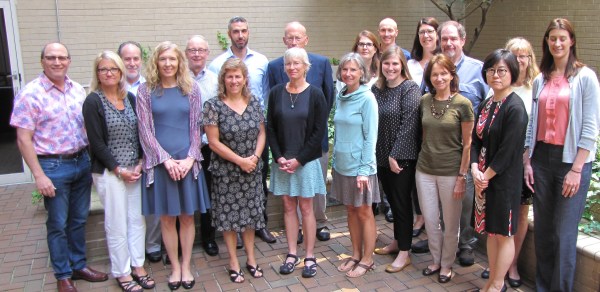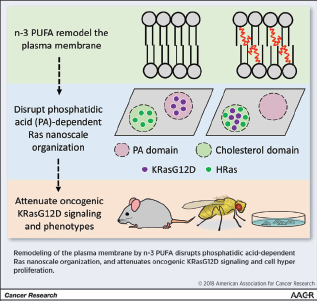Category: Lab News
-
Salinas Receives Top Award for Poster
Michael Salinas, graduate student in the Nutrition and Food Science department and member of Chapkin lab received top honors for his poster presentation at the Microscopy and Imaging Center open house held on Friday, October 5, 2018.
-
Fuentes Receives Award at 3rd Annual Postdoctoral Research Symposium
The Symposium, which highlighted research conducted by Texas A&M postdoctoral researchers, took place on Sept. 19, at the Thomas G. Hildebrand, DVM ’56 Equine Complex. Twenty-two postdoctoral researchers from Texas A&M gave flash talks while 20 delivered poster presentations. Fuentes, was awarded 2nd place for his poster presentation titled, “Long chain n-3 fatty acids attenuate…
-
Dr. Chapkin Co-Chair at AICR Review Panel
The Grant Review Panel strives to short-list proposals that are most relevant, innovative, and impactful. Only the strongest applications that offer the greatest potential to deliver new progress in the prevention of cancer, and improve outcomes through lifestyle modifications, will be funded to pursue their research. The process is highly competitive and rigorous. The Chair…
-
Recent Publication in Cancer Research
Long-Chain n-3 Fatty Acids Attenuate Oncogenic KRas-Driven Proliferation by Altering Plasma Membrane Nanoscale Proteolipid Composition Natividad R. Fuentes1,2, Mohamed Mlih3, Rola Barhoumi4, Yang-Yi Fan1, Paul Hardin5, Trevor J. Steele6, Spencer Behmer6, Ian A. Prior7, Jason Karpac3, and Robert S. Chapkin1,8 Ras signaling originates from transient nanoscale compartmentalized regions of the plasma membrane composed of specific…
-
Robert Chapkin on Relationships Between the Gut Microbiome, Diet, and Colorectal Cancer
Dr. Chapkin talks with cancerNetwork, home of the journal ONCOLOGY. “We have become very familiar with reports in the media comparing the health effects of Western diets, typically heavy in animal fats and proteins, with Asian and Mediterranean diets, which include more fish and place greater emphasis on consumption of fruits, vegetables, and whole grains.…





